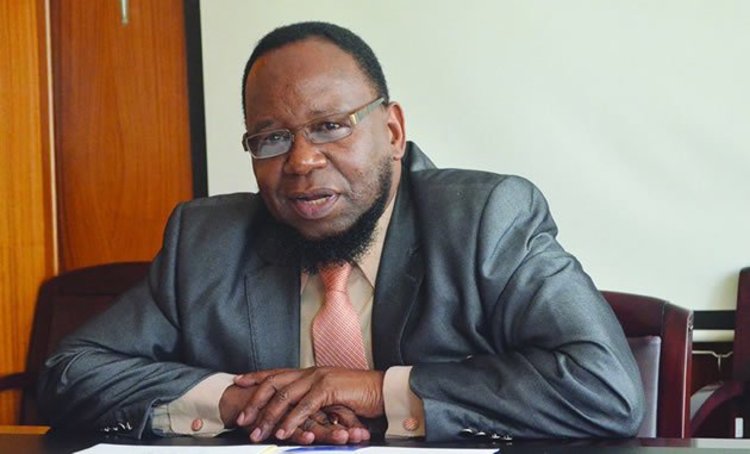Stemming rising cancer burden in Zim

Dr David Okello Correspondent
Zimbabwe joined the rest of the world on February 3, 2017 to commemorate the World Cancer Day held at the grounds of the Harare Central Hospital. The day allowed the nation to appreciate the growing cancer burden which is exerting tremendous physical, emotional and financial strain on individuals, families, communities and health systems. It has allowed also for the Government and partners to reflect on how to promote ways to ease the burden of cancer.
New WHO figures released to coincide with the World Cancer Day, show that in 2015, some 8,8 million people died from cancer, of which approximately two thirds occurred in low- and middle-income countries.
In addition, each year, over 14 million people are diagnosed with cancer. This figure is projected to rise to over 21 million by 2030 if nothing is done.
In sub-Saharan Africa cancer is emerging as a major public health concern. In Zimbabwe, cancer is already a main cause of morbidity and mortality with over 5 000 new diagnoses and over 1 500 deaths per year.
The number of people developing cancer is expected to increase due to HIV & AIDS and other infections, unhealthy lifestyle choices and an aging population.
The number of deaths due to cancer in the low and middle income countries exceeds those due to HIV/AIDS, tuberculosis and malaria combined. Each cancer death is a tragedy to a family and community with enormous repercussions to economic growth and development.
The World Health Organisation (WHO) provides guidance to countries including to Zimbabwe on how to address the cancer burden through comprehensive cancer control, founded on global coordination and strong health systems.
WHO acknowledges the role of all stakeholders to strengthen coordination and health systems in cancer control, working toward a future of healthy lives for all.
Comprehensive and collaborative cancer control consists of core components – prevention, early diagnosis and regular screening, treatment, palliative care and survivor-ship care.
In line with this comprehensive disease control approach let me share the following practical approaches that could contribute to the reduction of the burden of cancer:
First, low hanging fruits for a quick win could be the introduction of laws and regulatory measures to reduce exposure to cancer risks including tobacco, alcohol and unhealthy foods, as well as environmental exposures.
Effective advocacy for prevention is key as it is the most cost-effective public health strategy in non-communicable diseases control.
For example, tobacco control remains a high priority as articulated in the WHO Framework Convention on Tobacco Control. Legislation on tobacco use exists in Zimbabwe, but implementation of its provisions still lags behind.
Vaccination against human papillomavirus (HPV) and vaccination against hepatitis B virus are very cost-effective interventions for cervical and liver cancer prevention, respectively.
Strategies to address other risk factors, including physical inactivity, obesity, harmful use of alcohol, indoor and outdoor air pollution and exposure to known occupational and environmental carcinogens need multi-sectoral action and prioritisation.
Second, despite effective prevention programmes, people will still develop cancer because not all cancers are preventable.
Early diagnosis strategies improve cancer outcomes by providing care at the earliest possible stage and are therefore an important public health strategy in all settings.
Only in this way can lives be saved and the personal, societal and economic costs of cancer care reduced.
In this regard, WHO has also recently published a new “Guide to cancer early diagnosis” which provides clear guidance on key steps to improve early cancer diagnosis, which all countries irrespective of their economic status, should afford to implement.
Zimbabwe has only two functional public health centres offering diagnosis and treatment facilities for cancer with no formal accommodation for patients seeking services.
Limited availability of resources, including chemotherapy medicines, opioid analgesics and cancer control skilled human resources greatly compromise patient care in the country.
Moreover, although most paediatric tumours are potentially curable, there are limitations in diagnosis and treatment, leading to poor outcomes.
Be as it may, the emphasis for the country should be to promote early diagnosis and there is need for resources to ensure effective and people centred diagnosis.
Third, supportive care is essential in comprehensive cancer control, and providing access to pain relief is an international legal obligation.
Survivor-ship programmes should also be provided and include management of long-term toxicities, continuing supportive services and monitoring for recurrence.
For these practical and comprehensive responses to work there is an urgent need for the Government, communities, schools, employers and media to challenge perceptions about cancer and dispel damaging myths and misconceptions so that all people are enabled to access accurate cancer information and quality cancer prevention and care.
WHO recommends reducing the need for people with cancer to pay for care out of their own pockets, which remains a major barrier for many in seeking care in the first place, as part of the solution.
To achieve the targets set by the international community which Zimbabwe has also committed to reduce premature deaths from cancer and other non-communicable diseases by 25 percent by 2025 and by one-third by 2030, the latter as part of the Sustainable Development Goals, a continued broad partnership and resources is critical.
I would like to reiterate that WHO remains committed to supporting Zimbabwe in addressing the growing cancer burden by responding through our Country Cooperation Strategy which was concurrently launched together with the 2016-2020 National Health Strategy by the Minister of Health and Child Care.
Dr David Okello is the World Health Organisation Representative in Zimbabwe








Comments